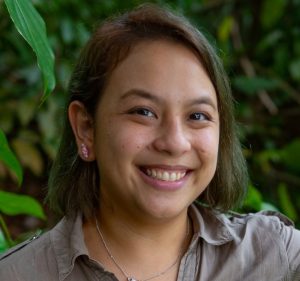










Information for Prospective Students
Applicants seeking admission to this programme must possess one of the following qualifications:
-
- A Bachelor’s (with Honours) degree or 4-year Bachelor’s degree in relevant disciplines; or
- A Bachelor’s degree with at least 2 years of relevant work experience.
Applicants from countries whose native language is not English and whose medium of university instruction is not completely in English are required to provide one of the following:
-
- Test of English as Foreign Language (TOEFL): Minimum score of 85 (internet-based test); or
- International English Language Testing System (IELTS): Minimum score of 6
Candidates with other qualifications and experience may be considered on a case-by-case basis, subject to approval by the Programme Committee.
The Early Admission Cycle for the August 2025 is now closed.
All completed applications are currently under review. All candidates will be informed of the outcome latest by end September 2024.
- There is a non-refundable and non-transferable application fee of S$100 (inclusive of GST).
- All unsuccessful applications from the Early Admission Exercise will be automatically rolled over to the Regular Cycle, which opens from 1 October 2024 to 15 March 2025 for reconsideration.
- Unless granted approval by the University, no candidate may concurrently be a student for more than one degree or register as an NUS candidate and of another university/institute.
Other Fee-related information
- Apart from tuition fees, there is a Student Services Fee (as published by NUS Registrar’s Office) payable every regular semester.
- Admission to the programme is granted on a competitive basis as places in the programme are limited. A non-refundable and non-transferable acceptance fee of S$5,450 (inclusive of GST) – which will be credited towards your tuition fees – is payable upon acceptance of offer. If you wish to accept our offer, please make online payment for the acceptance fee and submit reply on offer of admission in the Graduate Admission System.
- The University reserves all rights to review fees as necessary and adjust accordingly without prior notice.
Regarding Application Status
We apologise that we may not be able to respond to all enquiries pertaining to update of application status as we are experiencing a high volume of applications. Please check the admission status near end of September 2024.
The Regular Cycle for the August 2025 intake is now closed.
All completed applications are under review. Applicants of the August 2025 will be informed of the outcome via email, latest by end May 2025.
- All applicants should apply online via the Graduate Admission System. Please read the User Guide before applying.
- There is a non-refundable and non-transferable application fee of S$100 (inclusive of GST).
- All supporting documents must be uploaded (in pdf format) by the application closing date. English translations should accompany supporting documents that are not in English.
- Shortlisted candidates may be required to sit for an interview. The interview information will be communicated via email in due course.
- Unless granted approval by the University, no candidate may concurrently be a student for more than one degree or register as an NUS candidate and of another university/institute.
Mandatory Supporting Documents
For the detailed documentation requirements, please refer to the Full Checklist for Supporting Documents.
- Degree scroll/Student status letter
- Transcript
- IELTS/TOEFL
- At least two referee reports
- CV
- Official ID (i.e., NRIC or passport; or local ID if passport is not available)
- Documentary proof of financial support
- Other documents (if applicable)
Please note that we are unable to process your application until all relevant documents are received.
Other Fee-related information
-
- Apart from tuition fees, there is a Student Services Fee (as published by NUS Registrar’s Office) payable every regular semester.
- Admission to the programme is granted on a competitive basis as places in the programme are limited. A non-refundable and non-transferable acceptance fee of S$5,450 (inclusive of GST) – which will be credited towards your tuition fees – is payable upon acceptance of offer. If you wish to accept our offer, please make online payment for the acceptance fee and submit reply on offer of admission in the Graduate Admission System.
- The University reserves all rights to review fees as necessary and adjust accordingly without prior notice.
Information for Part-time Candidates
Please note that the classes run from morning to evening to minimise overlap. If you are planning to enroll on a part-time basis, please ensure beforehand whether you can make arrangements to attend the necessary courses. You can get an idea of the current timetable of the courses at NUSMods. This timetable may suffer modifications for a few courses each semester.
Regarding Application Status
We apologise that we may not be able to respond to all enquiries pertaining to update of application status as we are experiencing a high volume of applications.
The programme only has 1 intake per academic year in August.
The MSc programme can be completed full-time over one year (two semesters) or part-time over two years (four semesters) with a maximum candidature of two years for full-time students and four years for part-time students.
Please note that the MSc courses run from morning to evening to minimize overlap between courses. If you are planning to enroll on a part-time basis, please ensure beforehand whether you can make arrangements to attend the necessary courses. You can get an idea of the current timetable of the courses at nusmods.com. This timetable may suffer modifications for a few courses each semester.
|
Programme Management Committee |
|||
 |
Chair Assoc Prof L. Roman Carrasco Email: dbsctlr@nus.edu.sg |
 |
Dr Zeehan Jaafar Email: jaafarz@nus.edu.sg |
 |
Dr Maxine Allayne Darlene Mowe Email: dbsmadm@nus.edu.sg |
 |
Assoc Prof Darren Yeo Chong Jinn Email: dbsyeod@nus.edu.sg |
 |
Dr Chan Zhi Wei, Ian Email: ianchan@nus.edu.sg |
 |
Assoc Prof Ryan A. Chisholm Email: chisholm@nus.edu.sg |
|
Teaching Faculty |
|||
 |
Assoc Prof Frank Rheindt Email: dbsrfe@nus.edu.sg |
 |
Prof Koh Lian Pin Email: dbskohl@nus.edu.sg |
 |
Prof Peter Ng Kee Lin Email: dbsngkl@nus.edu.sg |
 |
Assoc Prof Danwei Huang Email: huangdanwei@nus.edu.sg |
 |
Asst Prof John Stoskopf Ascher Email: dbsajs@nus.edu.sg |
 |
Asst Prof Lim Jun Ying Email: jylim@nus.edu.sg |
 |
 |
||
 |
 |
|
|
|
Teaching Assistant |
|||
 |
Claudia Tan Email: claudiat@nus.edu.sg |
||
The MSc in Biodiversity Conservation and Sustainability programme aims to equip its students with key knowledge and capabilities in order to:
- Develop strategic approaches and solutions to current and emergent real-world conservation and climate change problems.
- Think analytically and develop strong practical and leadership competencies.
- Learn key quantitative and technical skills
-
- Data analysis
- Genetic analysis
- Mathematical biology
- Remote sensing and geographic information systems
- Ecological field techniques
-
- Develop key management and communication skills
-
- Conservation and sustainability leadership
- Science communication, writing and oral skills
- Conservation and sustainability project solving
- Conservation and sustainability enterprising
-
- Early to mid-career conservation or environment industry and public sector professionals seeking:
-
-
- specialised (depth) and/or additional (breadth) knowledge and skills
- additional qualifications and management skills for career or professional advancement
-
- Fresh graduates seeking to:
-
-
- explore the conservation and sustainability interface
- pursue post-graduate degrees
-
The MSc in Biodiversity Conservation and Sustainability is a 40 units programme. The programme can be completed full-time over one year (two semesters + special semesters) or part-time over two years (four semesters) with a maximum candidature of two years for full-time students and four years for part-time students.
Students need to complete courses comprising two essential core courses (8 units) and elective courses amounting up to 20 units, and either one research project or internship course (12 units).
|
Course Code |
Course Title |
Units |
|
Core Courses – Students must complete either BL5199 or BL5299 and 2 core courses (total 20 units) |
||
|
BL5199 or BL5299 |
Research Project in Conservation and Nature-based Climate Solutions or Internship in Conservation and Nature-based Climate Solutions |
12 12 |
|
BL5301 |
4 |
|
|
BL5302 |
4 |
|
|
Elective Courses – Students are required to complete courses amounting to a total of 20 units from any of the following baskets. Up to two elective courses can be replaced by level-4000 courses, subjected to approval from the department. |
||
|
Science-Conservation Interface (BCNCS-SCI) Basket |
||
|
BL5210 |
4 |
|
|
BL5218 |
4 |
|
|
BL5225 |
4 |
|
|
BL5230 |
4 |
|
|
BL5312 |
4 |
|
|
BL5324 |
4 |
|
|
LSM4262 |
4 |
|
|
Conservation Analyses and Tools (BCNCS-CAT) Basket |
||
|
BL5217 |
4 |
|
|
BL5233 |
4 |
|
|
BL5322 |
4 |
|
|
BL5323 |
4 |
|
|
BL5238 |
Infectious Disease Modelling |
2 |
|
BL5234 |
Quantitative Methods and Critical Thinking in Biology |
4 |
| LSM4255 |
4 |
|
| GE5227 |
Internet GIS |
4 |
| QF5205 |
Topics in Quantitative Finance I |
4 |
| QF5208 |
AI and FinTech |
4 |
|
Conservation Policy (BCNCS-CP) Basket |
||
|
BL5331 |
4 |
|
|
BL5102 |
4 |
|
|
BL5311 |
4 |
|
|
BL5313 |
4 |
|
|
ECA5884 |
Applied Behavioural Economics |
4 |
|
ECA5881 |
Topics in Economic Policy |
4 |
|
FE5224 |
2 |
|
Full programme fees of S$52,320 (inclusive of 9% GST) will be effective from AY2025/2026, Semester 1 intake.
Full-time students will pay the tuition fees over the first two semesters and part-time students will pay the tuition fees over the first four semesters, following the payment plan,
|
Semester |
Full Time (inclusive of GST) |
Part Time (inclusive of GST) |
|
Acceptance Fee |
5,450 |
5,450 |
|
1 |
20,710 |
7,630 |
|
2 |
26,160 |
13,080 |
|
3 |
– |
13,080 |
|
4 |
– |
13,080 |
Please kindly take note of the following when applying,
- There is a non-refundable and non-transferable application fee of S$100 (inclusive of GST).
- Apart from tuition fees, there is a Student Services Fee (as published by NUS Registrar’s Office) payable every regular semester.
- Admission to the programme is granted on a competitive basis as places in the programme are limited. A non-refundable and non-transferable acceptance fee of S$5,450 (inclusive of GST) – which will be credited towards your tuition fees – is payable upon acceptance of offer.
- The University reserves all rights to review fees as necessary and adjust accordingly without prior notice.
NUS ASEAN Master’s Scholarship
The NUS ASEAN Master’s Scholarship is a continuation of the DiscoverNUS scheme. It is an exclusive bond-free scholarship that covers full tuition fees for the normal candidature period of a Master’s degree programme at NUS. The scholarship may be offered only to candidates who have met all the following requirements:
- Hold citizenship in Brunei, Cambodia, Indonesia, Laos, Malaysia, Myanmar, the Philippines, Thailand or Vietnam,
- Have completed an undergraduate semester at NUS under the DiscoverNUS scheme,
- Have earned an undergraduate degree from one of the partner universities in their country, and
- Have been offered a place in one of the designated Master’s Degree programmes at NUS.
A separate application to be considered for the scholarship is not necessary.
Recipients of the scholarship may not concurrently hold any other scholarship, fellowship, bursary, grant, award or allowance without notifying NUS. If a recipient withdraws from the University and/or terminates the scholarship prematurely, NUS reserves the right to impose repayment of all scholarship monies disbursed.
Find out more about the scholarship here.
Application Information
Do I have to submit the English proficiency test (TOEFL/IELTS) scores for admission if my native language is English and have earlier education in the English language?
You may provide an official letter from your University confirming that the medium of instruction is English.
Will I need to upload my GRE scores in addition to TOEFL/IELTS results?
GRE scores are not required.
Fee Payment
Are there scholarship opportunities for this programme?
Refer to Scholarship Opportunities.
Am I eligible for the CPF Education Loan Scheme (CELS)?
Only full-time undergraduate students are eligible for CELS. Students enrolled in our MSc Biodiversity Conservation and Nature-based Climate Solutions programme are not eligible for CELS. For more information, please visit the CPF website.
Am I eligible for the Post-Secondary Education Account (PSEA) scheme?
The PSEA Scheme is administered by the Ministry of Education (MOE) and is opened to all eligible Singaporeans. Please refer to the MOE website on the eligibility for PSEA.
For more information on using your PSEA funds for the payment of tuition fees, please visit NUS Graduate School’s website, here.
Am I eligible for staff concession if I am a full-time NUS staff member?
As this is a self-funded programme, students enrolled in our MSc Biodiversity Conservation and Sustainability programme will not be eligible for staff concession.
Am I eligible for the Service Obligation (SO) Scheme if I am an international student?
Only international Students reading a government-subsidised programme can apply for the SO Scheme. Our MSc Biodiversity Conservation and Sustainability is a self-funded programme and international students enrolled in this programme will not be eligible for the SO Scheme. Please also note that students admitted from AY2020/2021 will no longer be eligible for the SO Scheme.
For enquiries, please email us at dbsbox41@nus.edu.sg.
Information for Current Students
|
Programme Management Committee |
|||
 |
Chair Assoc Prof L. Roman Carrasco Email: dbsctlr@nus.edu.sg |
 |
Dr Zeehan Jaafar Email: jaafarz@nus.edu.sg |
 |
Dr Maxine Allayne Darlene Mowe Email: dbsmadm@nus.edu.sg |
 |
Assoc Prof Darren Yeo Chong Jinn Email: dbsyeod@nus.edu.sg |
 |
Dr Chan Zhi Wei, Ian Email: ianchan@nus.edu.sg |
 |
Assoc Prof Ryan A. Chisholm Email: chisholm@nus.edu.sg |
|
Teaching Faculty |
|||
 |
Assoc Prof Frank Rheindt Email: dbsrfe@nus.edu.sg |
 |
Prof Koh Lian Pin Email: dbskohl@nus.edu.sg |
 |
Prof Peter Ng Kee Lin Email: dbsngkl@nus.edu.sg |
 |
Assoc Prof Danwei Huang Email: huangdanwei@nus.edu.sg |
 |
Asst Prof John Stoskopf Ascher Email: dbsajs@nus.edu.sg |
 |
Asst Prof Lim Jun Ying Email: jylim@nus.edu.sg |
 |
 |
||
 |
 |
|
|
|
Teaching Assistant |
|||
 |
Claudia Tan Email: claudiat@nus.edu.sg |
||
Please visit NUSMods for the NUS timetable builder.
The MSc in Biodiversity Conservation and Sustainability is a 40 units programme. The programme can be completed full-time over one year or part-time over two years with a maximum candidature of two years for full-time students and four years for part-time students.
Students need to complete courses comprising two essential core courses (8 units) and elective courses amounting up to 20 units, and either one research project or internship course (12 units).
|
Course Code |
Course Title |
Units |
AY24/25 |
|
Core Courses – Students must complete either BL5199 or BL5299 and 2 core courses (total 20 units) |
|||
|
BL5199 or BL5299 |
Research Project in Conservation and Nature-based Climate Solutions or Internship in Conservation and Nature-based Climate Solutions |
12 12 |
S1/S2 |
|
BL5301 |
4 |
S1 |
|
|
BL5302 |
4 |
S2 |
|
|
Elective Courses – Students are required to complete courses amounting to a total of 20 units) from any of the following course baskets. Up to two elective courses can be replaced by level-4000 courses, subjected to approval from the department. |
|||
|
Science-Conservation Interface (BCNCS-SCI) Basket |
|||
|
BL5210 |
4 |
||
|
BL5218 |
4 |
||
|
BL5225 |
4 |
||
|
BL5230 |
4 |
||
|
BL5312 |
4 |
||
|
BL5324 |
4 |
||
|
LSM4262 |
4 |
||
|
Conservation Analyses and Tools (BCNCS-CAT) Basket |
|||
|
BL5217 |
4 |
||
|
BL5233 |
4 |
||
|
BL5322 |
4 |
||
|
BL5323 |
4 |
||
|
BL5238 |
2 |
||
|
BL5234 |
Quantitative Methods and Critical Thinking in Biology |
4 |
|
|
LSM4255 |
4 |
||
|
GE5227 |
4 |
||
|
QF5205 |
Topics in Quantitative Finance I |
4 |
|
|
QF5208 |
AI and FinTech |
4 |
|
|
Conservation Policy (BCNCS-CP) Basket |
|||
|
BL5331 |
4 |
||
|
BL5102 |
4 |
||
|
BL5311 |
4 |
||
|
BL5313 |
4 |
||
|
ECA5881 |
Topics in Economic Policy |
4 |
|
|
ECA5884 |
Applied Behavioural Economics |
4 |
|
|
FE5224 |
2 |
||
*For cross-faculty courses, please visit the respective website for more details on the course information.
CORE COURSES
BL5301 – Conservation Problems and Practice (4 units)
A broad introduction to global conservation issues (marine, terrestrial and freshwater) focusing on threats underlying the loss of species and habitats globally. This course aims to explore the economic, social and biological context of biodiversity loss and conservation. Major topics will include deforestation impacts and drivers such as mining, agribusiness, hydropower, wildlife trafficking, ecosystem services, human-wildlife conflict and climate change. Further, the course will include an emphasis on conservation practice and current approaches and strategies to tackling conservation problems.
BL5302 – Topics on Nature-based Climate Solutions (4 units)
Climate change has become the defining issue of the 21st century, with far-reaching implications for both natural and human systems. Nature-based climate solutions are an important part of global strategies to address climate change. This course covers current issues related to the impacts of climate change, the potential and limitations of nature-based climate solutions, and the co-benefits they deliver.
BL5199 – Research Project in Conservation and Nature-based Climate Solutions (12 units)
This is a project-based course for students taking the MSc in Biodiversity Conservation and Nature-based Climate Solutions. Students will take this course or BL5299 (Internship in Conservation and Nature-based Climate Solutions). In this course, students will conduct research on topics related to conservation science, under the supervision of a faculty member and/or co-supervisors with our industry partners. Through this independent project, students will gain hands-on practical knowledge in solving conservation-science related problems using scientific techniques. The research project is concluded with a written report and an oral presentation.
BL5299 – Internship in Conservation and Nature-based Climate Solutions (12 units)
This is a project-based coursefor students taking the MSc in Biodiversity Conservation and Nature-based Climate Solutions. Students will take this course or BL5199 (Research project in Conservation and Climate Solutions). In this course, students will engage in an internship project with our industry partners. Through this independent project, students will gain hands-on practical knowledge in solving conservation-science related problems using scientific techniques. The internship project is concluded with a written report and an oral presentation.
ELECTIVE COURSES
Please note that not all elective courses are offered every year. It would depend on the availability of the teaching staff and course demands.
BL5210 – Biogeography and Global Change (4 units)
Biogeography, the study of where organisms live and why, is a multidisciplinary science central to evolutionary biology, conservation, and global change biology. It encompasses both historical and ecological factors and employs a wide range of methods. This course will introduce key concepts biogeographic concepts and their applications. Students will investigate a topic of their choosing and share the results in a short presentation. Topics covered vary depending on student background and interests and can encompass diverse ecosystems, taxa, geographic area, timespans, and analytical methods. Many projects address global or regional conservation issues and the impacts of climate change.
BL5217 – Population Genomics and Phylogenomics (4 units)
The course will examine how genome-wide datasets can be applied to questions relating to the evolutionary history of animal and plant lineages. Some of the major topics discussed will be
(1) genome-wide datasets used to entangle rapid radiations,
(2) genome-wide SNPs deployed to discover patterns of gene flow between neighbouring lineages,
(3) introgression and admixture across hybrid zones, and many more.
BL5218 – Directed Studies in Behavioural Ecology (4 units)
Behavioural ecology combines ideas from evolution, ecology and behaviour. This course is to expose students to some of the most important and technical advances in the field and provides them an opportunity to develop professional skills in reading, researching, discussing, presenting, and writing about a selection of contemporary topics in behavioural ecology. All the assignments are tailored to student-directed inquiry.
BL5230 – Biological Invasions (4 units)
Invasive alien species are a leading global threat to native biodiversity and ecosystem function. They can also have costly impacts on economies, and affect human health and well-being. This course aims to introduce the field of invasion biology and relevant topical and local issues through lectures, directed reading and discussion, and project work. Selected topics will include invasion pathways, prevention and management of biological invasions, invasive plants, urban invasive species, aquatic invasive species, and climate change and invasive species.
BL5233 – Data Analysis for Conservation Biology with R (4 units)
Analysis and modeling of environmental biology data are essential skills in environmental biology in general and ecological research in particular. The range of statistical and modeling techniques necessary to analyze real data and the complexities inherent to natural systems will be covered. The course will provide graduate students with the expertise to perform modeling and statistical inference on environmental biology datasets at a publishable standard. Topics covered include: generalized linear models, generalized additive models, generalized linear mixed-effects models, analysis of communities structure, time series and spatial statistics.
BL5234 – Quantitative Methods and Critical Thinking in Biology (4 units)
Quantitative methods are increasingly used in biology. This course focuses on quantitative methods including dynamical systems, individual-based models, and general quantitative reasoning. The course also strongly emphasises critically thinking about when and why to use quantitative methods in biology. Each topic will be taught in the context of a few relevant high-impact papers. Topics include biodiversity, cell biology, population genetics, evolutionary game theory, and circadian rhythms. For each topic, we will learn key quantitative methods, have a critical discussion about how the quantitative methods were applied in the papers, and discuss the real-world implications.
BL5238 – Infectious Disease Modelling (2 units)
Infectious disease modelling has a distinguished history going back to the 1700s and is becoming ever more relevant to human society. This course teaches core skills of infectious disease modelling, focusing on the mathematical analysis of dynamical systems and computer programming of individual-based models in R. The first half of the course will cover classic models, such as Bernoulli’s smallpox vaccination model from the 1700s, Ross’s malaria model from the early 1900s, and Kermack–McKendrick’s susceptible–infected–recovered (SIR) model. The second half of the course will focus on more-recent case studies of currently relevant diseases.
BL5311 – Freshwater Conservation (4 units)
Freshwater ecosystems are extremely important habitats, housing vast species diversity and providing potable water, energy (hydro-electric dams) and revenue (fisheries) for the global population. With impending threats of urban development, climate change, pollution and invasive species, freshwater conservation is vital to maintaining the health and function of these ecosystems. This course will include hands-on use of conservation tools, case studies of current freshwater conservation projects, designing biomonitoring for conservation outcomes and future challenges to freshwater conservation. Effective freshwater management approaches will also be covered with possible applications for understudied regions.
BL5312 – Natural History Collections and Conservation (4 units)
Can the dead save the Earth? Natural history collections, being crucial repositories of biological specimens, are indispensable for scientific research and public education. This course highlights the importance of research and display of natural history collections to biodiversity conservation, with emphasis on Southeast Asia, which is one of the most biotically threatened regions. Topics include the changing roles of natural history collections from the past to the future, and different aspects of specimen-based research—from the field to the museum shelves and public gallery, to the world beyond via applications in research (e.g., ecology, evolution, global change) and scientific communication.
BL5313 – Food Security and Sustainability (4 units)
The growing local and global population is increasing world food demand. As Singapore’s population is projected to reach 6.9 million by 2030, it faces significant food security challenges considering that most of its food supplies are imported. How will we feed our population under these challenges? This course covers the history of food security in Singapore and the Southeast Asian region, sustainability of current practices and challenges (growing threat of climate change, export bans, pandemics, impacts on biodiversity conservation) facing Singapore now and in the next 50 years. This course will include field trips to agrotechnology facilities and guest lectures.
BL5322 – Field Techniques in Biological Conservation (4 units)
Studies on biological systems encompasses biotic and abiotic components. Techniques to obtain data from these systems are extremely varied. This course offers insights into current techniques adopted by practitioners in the field of biological conservation and nature-based climate solutions. The course content is especially designed to provide an overview on the necessary tools to quantify abiotic parameters, organisms, interactions, and processes in natural and modified habitats. Field techniques are the crucial first steps in sound study designs to ensure robust datasets for later analyses and interpretation. Core concepts are shared during lectures sessions with hands-on opportunities during fieldtrips.
BL5323 – Spatial Modelling for Environmental Sustainability (4 units)
Spatial and social data management and analysis are essential to support environmental sustainability interventions. Information on carbon stocks distribution, biodiversity, land-use change and opportunity costs help devise, monitor and assess the effectiveness of conservation and nature-based climate solutions interventions. Environmental sustainability practitioners that are able to handle and analyse large quantities of spatial and social data generated by remote sensing and social media are in high demand, especially towards the monitoring and verification of carbon credits. To fill this demand gap, the course trains students in the integration of spatial and social modelling skills with an emphasis in geographic information systems and machine learning to answer environmental sustainability questions. Topics covered in the course include GIS, biodiversity modelling, remote sensing, deforestation modelling, boosted regression trees, deep learning, conservation planning and social and behavioural science methods including discrete-choice modelling, the Q-method and structural equation modelling.
BL5324 – Ecological Perspectives on Global Change (4 units)
The ways that humans have shaped the biodiversity of this planet are complex, multi-faceted and heterogeneous. Efforts to protect biodiversity and ecosystems thus requires a critical understanding of how ecological processes are disrupted by anthropogenic impacts and its implications across various spatial and temporal scales. This course will cover the foundations of ecology and biodiversity theory, how human impacts are affecting ecological processes, and the downstream implications of these effects.
BL5331 – Sustainability Science (4 units)
This course will introduce environmental governance and policy frameworks relevant to the global context of biodiversity conservation. Major topics include governance in relation to climate change, and international conservation policy (CITES, CBD etc.), resource politics and transboundary environmental problems. The course will also focus on innovative solutions being applied to solve environmental issues and promote sustainability through an overview of corporate social responsibility, innovative approaches to sustainable financing and incentive- based approaches to conservation.
LSM4262 – Tropical Conservation Biology (4 units)
Conservation and the loss of biodiversity and natural ecosystems are currently regarded as one of the most pressing problems facing mankind. The course will highlight the impact of habitat loss on biodiversity and the basis for formulation of effective conservation management strategies. The course will also introduce students to the theory of current conservation biology as illustrated by applications in tropical areas, species conservation issues, ecological challenges, role of zoological gardens, legal challenges etc. Conservation of tropical biota, management of local and regional environmental problems, appreciation and consideration of the socio-economic issues will also be treated. Conservation priorities and developmental needs at the national level will also be discussed, with emphasis on Singapore and SE Asia. The course will have guest lecturers from overseas as well as managers and conservation-players from the local environment. It will also involve a special round-table discussion on specific conservation issues.
DE5269 – Environmental Economics and Sustainable Development (4 units)
The main aim of this course is to arrive at set of economic policies that would facilitate sustainable development. These policies are demonstrated at both microeconomic and macroeconomic levels. The distinguishing feature of this demonstration is the recognition of the laws of thermodynamics and ecological resilience. The microeconomic analysis will begin with a critical review of basic concepts pertaining to consumption, preferences, demand, production, costs and markets. The standard approaches to natural resource management would be then considered in the light of this critical review. The internalization of thermodynamic principles and other scientific paradigms into the analytic frameworks of microeconomics can prompt deviations from the standard approaches to resource management. The macroeconomic analysis begins with methods of environmental accounting, which recognizes nature as capital besides labour and manufactured capital. The validity of this perception will be tested by recourse to a simple macroeconomic framework, which explicitly regards all natural resources as an aggregate item of capital. The class will be guided towards the formulation and application of this macroeconomic framework for the analysis of sustainable development. The final section of the course concerns the assembly of various management policies that strive for sustainable development.
BL5102 – Environmental Science (4 units)
The course introduces the scientific basis for environmental management. It discusses the earth’s environmental dimensions of air, water and land, and the interaction between living and non-living components. Earth is considered as a system through which materials are continuously cycled. Impacts caused by natural or human influences affect the state of balance, leading to environmental problems, with human impacts causing more serious consequences to the environment and human society. The course covers the properties of air, water and land, ecosystems, biogeochemical cycles, ecosystem integrity and environmental capacity, pollution pathways and impacts, conservation science, integrated management approaches. The emphasis is to provide a sound understanding of the scientific basis for better environmental decision-making. Targeted Students – For students on the MSc in Environmental Management programme. Research students and students from other graduate programmes in NUS may apply subject to suitability of candidate and availability of places.
GE5227 – Internet GIS (4 units)
This course provides state‐of‐the‐art training in Internet GIS technologies and spatial theories for mapping and comprehending activities in virtual space, real space, and the intersections of the two spaces. It sees Internet as an integral part of social life and provides students a venue to explore the implications of the digital transformations brought forth by the Internet. Major topics that will be covered include 1) web‐based GIS mapping, 2) Internet of Things, 3) social sensing and social web, and 4) social dynamics of the Internet.
FE5224 – Current Topics In Applied Risk Management (2 units)
The global financial crisis triggered a set of structural changes that continue to play out in market microstructure and market architecture. Practitioners, on both the buy-side and sell-side, are in the midst of responding to new regulations around bank capital, operational risk, supervision and other non-market factors. The backdrop is complicated further by apparent disinflation, greater potential for event risk, macro-prudential interventions and in places, negative interest rates. The risk management context is also coloured by innovation in ‘fintech’ and cyber-risk.
For students admitted in AY2020/21 and AY2021/22,
Direct Admission Route
Full programme fee of S$49,050 (inclusive of GST) will be payable over the first two semesters for full-time students, and first four semesters for part-time students.
The payment plan is as follows,
|
Semester |
Full Time MBCS |
Part Time MBCS |
|
Acceptance Fee |
5,450 |
5,450 |
|
1 |
19,075 |
6,812.50 |
|
2 |
24,525 |
12,262.50 |
|
3 |
– |
12,262.50 |
|
4 |
– |
12,262.50 |
For students admitted in AY2022/23 and AY2023/24,
(a) Direct Admission Route
Full programme fee of S$49,050 (inclusive of GST) will be payable over the first two semesters for full-time students, and first four semesters for part-time students.
The payment plan is as follows,
|
Semester |
Full Time MBCS |
Part Time MBCS |
|
Acceptance Fee |
5,450 |
5,450 |
|
1 |
19,075 |
6,812.50 |
|
2 |
24,525 |
12,262.50 |
|
3 |
– |
12,262.50 |
|
4 |
– |
12,262.50 |
(b) ‘Stackable’ Route*
|
Course Type |
Full Course Fee |
|
|
BL5199 & BL5299 (12 units) |
14,715 |
|
|
Level-5000 non-lab course (4 units) |
5,886 |
|
|
Level-5000 lab-based course (4 units) |
6,322 |
|
|
Level-4000 non-lab course (4 units) |
4,578 |
|
|
Level-4000 lab-based course (4 units) |
5,014 |
|
*All courses in the programme will cease to be SSG-subsidised starting AY2024/25, due to the changes in the funding criteria.
For students admitted in AY2024/25,
Direct Admission Route
Full programme fee of S$49,050 (inclusive of GST) will be payable over the first two semesters for full-time students, and first four semesters for part-time students.
The payment plan is as follows,
|
Semester |
Full Time MBCS |
Part Time MBCS |
|
Acceptance Fee |
5,450 |
5,450 |
|
1 |
19,075 |
6,812.50 |
|
2 |
24,525 |
12,262.50 |
|
3 |
– |
12,262.50 |
|
4 |
– |
12,262.50 |
*SC/SPR students of the AY2024/25 intake will automatically be extended a 40% tuition fee rebate.
Important Information
- A non-refundable and non-transferable acceptance fee of S$5,450 (inclusive of GST), which will be credited towards your tuition fees, is payable upon acceptance of offer.
- Students who have started on a selected pathway are not allowed to switch over to the other route.
- Miscellaneous Student Fees (MSFs) are payable for every regular semester, subject to prevailing rates. For more information on the miscellaneous student fees, please refer to the link here. There are no associated fees for students on the Direct Admission Route for the Special Terms.
- All prices quoted are in Singapore Dollars and inclusive of prevailing GST rate.
For continuation of candidature, a student must obtain satisfactory progress during their candidature.
-
- Academic warnings will be issued to students if their GPA falls below 3.00 (but ≥2.50); and
- Dismissal and/or refusal of readmission will be issued to students if their GPA falls below 2.50 for two consecutive semesters of study; or GPA below 3.00 (but ≥2.50) for three consecutive semesters of study.
To be awarded the MSc in Biodiversity Conservation and Nature-based Climate Solutions, the student must successfully complete a programme of study consisting of at least 40 units with a minimum GPA of 3.00, which consist of the following:
-
- Two core courses (8 units)
- Any five elective courses (20 units)
- Any one research project or internship course (12 units)
For enquiries, please email us at mbcncs@nus.edu.sg
